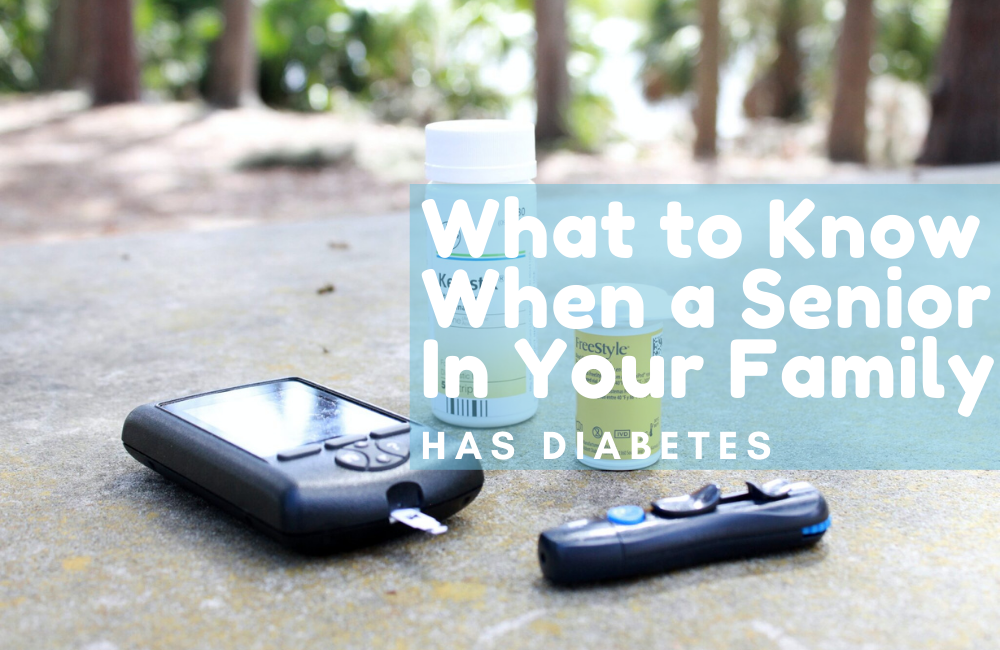Did you know that nine percent of Americans have either Type 1 or Type 2 Diabetes? In fact, 25% of those are seniors. Furthermore, this disease is a contributing factor in 252,806 deaths in the US every year.
As the numbers show, diabetes is a huge problem in America. Among those who suffer from this condition, seniors are the ones experiencing most of the complications that come with it. Another problem is that diabetes treatment can be complicated, on top of the regular monitoring that it requires. This is why if you have senior family members who have diabetes, it is crucial that you fully understand the type and scope of care that they need to manage this health issue and prevent further complications.
To provide the best care for your loved ones, Bridge Home Health & Hospice provides you information about diabetes that you need to know:
Two Forms of Diabetes
Type 1 diabetes, which is also called juvenile diabetes, can affect anyone no matter the age. What happens is that the body stops producing insulin and cannot get glucose from the bloodstream to the body’s cells. In fact, 40,000 people are diagnosed with Type 1 Diabetes every year. Type 2 Diabetes, on the other hand, causes the blood sugar to spike higher than normal. When this continues, the pancreas eventually won’t be able to produce enough insulin to control blood glucose levels.
Type 1 Diabetes usually needs insulin treatment, while Type 2 may be treated by exercise, a healthy diet, and sometimes, medication
Symptoms of Diabetes
Because diabetes can occur at any age, it’s a good idea to know the most common symptoms of this disease that you should watch out for:
- More frequent urination
- Always feeling thirsty
- Extreme hunger
- Blurry vision
- Fatigue
- Cuts or bruises that do not heal fast
- Unexplained weight loss
If you notice these symptoms, make sure to consult with a doctor so that they can perform the proper tests. Note that seniors are more likely to experience diabetes-related complications like myocardial infarctions, lower-extremity amputation, renal failure, and visual impairment. They are also prone to hypoglycemia, so they need to be monitored regularly.
Treatment
For seniors with diabetes, whether it’s Type 1 or Type 2, the treatment is mostly reliant on routine. Doctors often suggest constant monitoring of blood glucose levels, which can be as frequent as four times a day. Also, insulin administration is necessary for Type 1 diabetes patients. This can be done manually, or the patient may need a pump with a catheter that connects a reservoir of insulin to the body. What this pump will do is administer the necessary doses of insulin.
Type 2 diabetes sufferers, on the other hand, may not need blood sugar testing that frequently but they still need to be monitored. Usually, metformin is taken orally but there are still instances when insulin is necessary. There are also less severe cases where a healthy diet plus an exercise regimen is enough to control diabetes.
People with diabetes are often recommended a diet made up of:
- Lean protein
- Low fat (No trans-fat)
- Vitamins, fiber, and minerals
- No or less sugar
As for physical activities, those with diabetes should do:
- Aerobic exercises like walking, biking, or swimming
- Strength training
- Flexibility exercises like yoga
- Maintain an overall more active lifestyle
Why Home Health Services Are Advisable for Seniors with Diabetes
The concern is that because diabetes relies on constant monitoring and a treatment routine, seniors often find it difficult to manage their illness. This is especially difficult for those with mental decline like dementia or Alzheimer’s disease. Even younger patients sometimes have trouble staying on top of their treatment routine.
Additionally, the challenge of preparing fresh and healthy meals suitable for people with diabetes can also pose a challenge. In fact, exercises could be risky without proper supervision. For these reasons and more, it is important that seniors with diabetes are provided with constant care from someone with knowledge of diabetes and the care it requires.
Conclusion
Diabetes should never be taken lightly, especially when the one suffering from it is the elderly. It is crucial that diabetes patients have someone with them who knows what to look out for, how to help them manage it, administer insulin, monitor their blood sugar level, and more.
While having family members do all of those is fine, it is so much better to have a professional provide their loved one with home health care. This will also give the family peace of mind that their loved one is getting the best care possible.
Bridge Home Health & Hospice offers reliable home-based senior health services in California. We have licensed professionals like nurses and therapists who can help diabetes patients with their treatment routine and disease management. Contact us today to know more!

